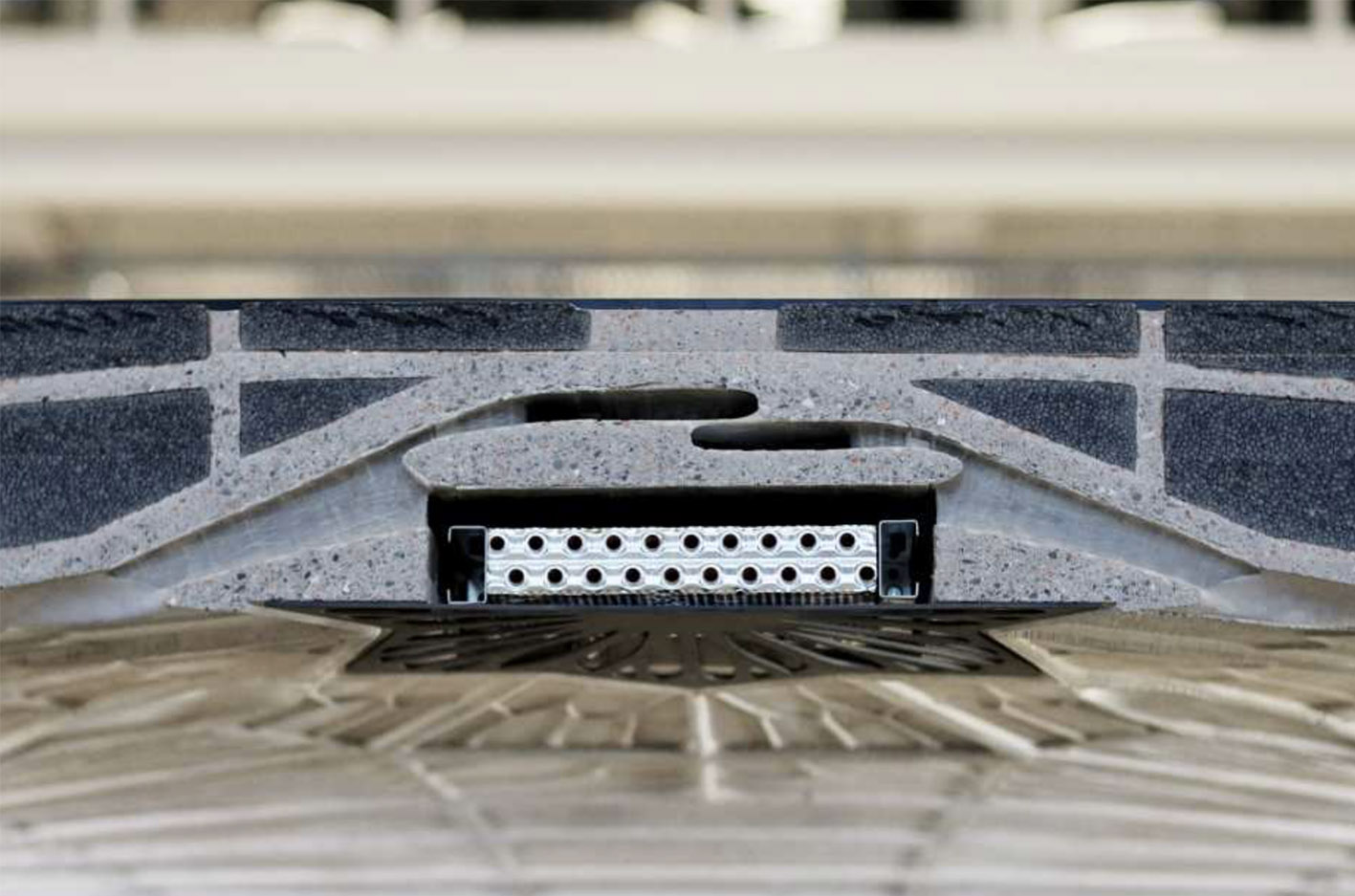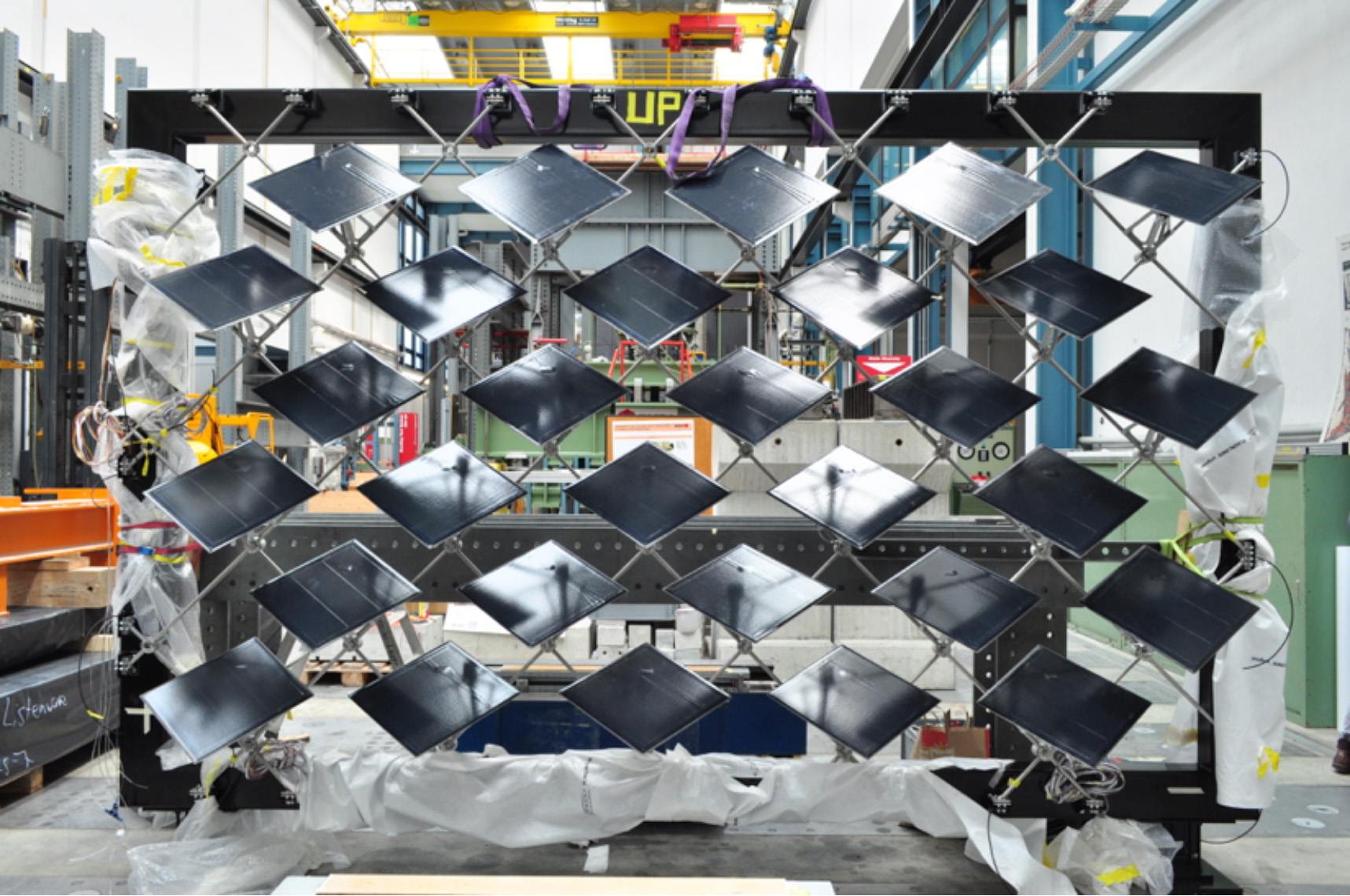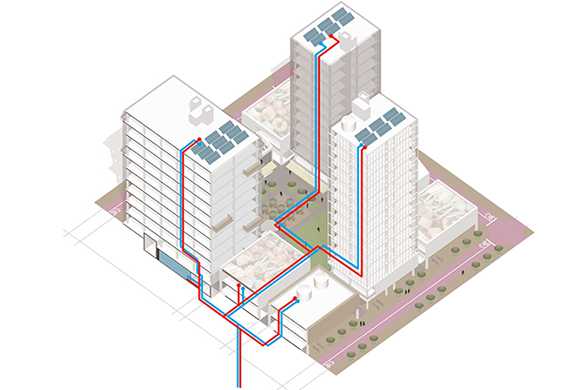Architecture and Building Systems
Prof. Dr. Arno Schlüter

The Chair of Architecture and Building Systems (A/S) researches on active and passive systems for the energy supply and climate control of buildings with research projects and case studies at various scales ranging from design to operation. The motivation and aim of our research is to realize a CO2-neutral built environment that efficiently consumes and produces energy while providing high user comfort. The A/S Group is also part of the Future Cities Laboratory (FCL) at the Singapore-ETH Centre. Here, the research focus is laid on efficient technologies and integrated design concepts for low-carbon buildings and cities in the tropics, taking the particular spatial and climatic challenges of Singapore into account.
A/S research projects combine different scales: component – building – neighbourhood. On component scale we are researching on active and adaptive interfaces on the building envelope, for example by utilizing soft robotic actuators. Such actuators allow solar tracking applications on an adaptive solar façade, i.e. they allow to rotate photovoltaic modules towards the sun as it traverses the sky and thereby to improve the generated power output in balance with user comfort.
On building scale, the A/S Group collaborated with other ETH researchers on a functionally integrated funicular floor system, contributing an innovative 3D-printed ventilation ducting system and a hydronic coil for a low temperature heating and cooling system to the design. The floor system will be implemented at the NEST HiLo innovation unit in late 2019 as part of a sophisticated building energy concept.
Finally, our MuSES project exemplifies the group’s research on neighbourhood scale. MuSES – Multi-Scale Energy Systems for Low Carbon Cities – aims at developing analytical means to identify future energy demand and supply systems (thermal, electrical) for mixed-use, high-density city quarters. A Singapore-based case study is used to undertake these investigations, assisted by novel spatial toolsets for energy modelling, analysis and optimization such as the external page City Energy Analyst (CEA) Toolbox.

